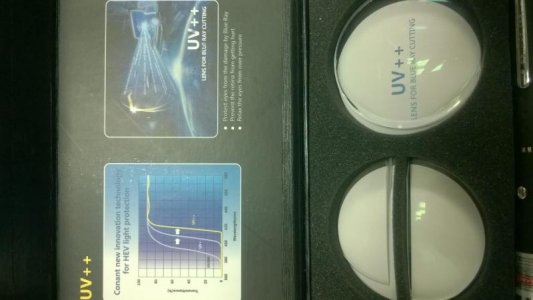So, for a living I’m in the optical industry for the past 10 years, I am a lens manufacture and distributor (lenses for glasses) in the pastfew years’ studies has shown that Blue UV rays from computer and especially from smart phone are harmful to the human eye causing Macular Degeneration.
“Ultra-violet and Blue Light Ultra-violet light is thatportion of the spectrum of invisible light below 286nm to 400nm, and isgenerally understood to be harmful to the eye”
https://www.macular.org/ultra-violet-and-blue-light
In this hobby that we are in, with the lights on the tanks we have I’m sure we are exposed to a lot more than the average person.
In the past 6 months come lens companies have develop lenses that cut down the Blue harmful UV rays almost down to 0 I believe, I got some samples in the office on how it works.
I’m posting this not to make $ by selling lenses, you can go to your local optical store for that, but just to lets you guys know about it
Attached Thumbnails
“Ultra-violet and Blue Light Ultra-violet light is thatportion of the spectrum of invisible light below 286nm to 400nm, and isgenerally understood to be harmful to the eye”
https://www.macular.org/ultra-violet-and-blue-light
In this hobby that we are in, with the lights on the tanks we have I’m sure we are exposed to a lot more than the average person.
In the past 6 months come lens companies have develop lenses that cut down the Blue harmful UV rays almost down to 0 I believe, I got some samples in the office on how it works.
I’m posting this not to make $ by selling lenses, you can go to your local optical store for that, but just to lets you guys know about it
Attached Thumbnails
Attachments
Last edited:

